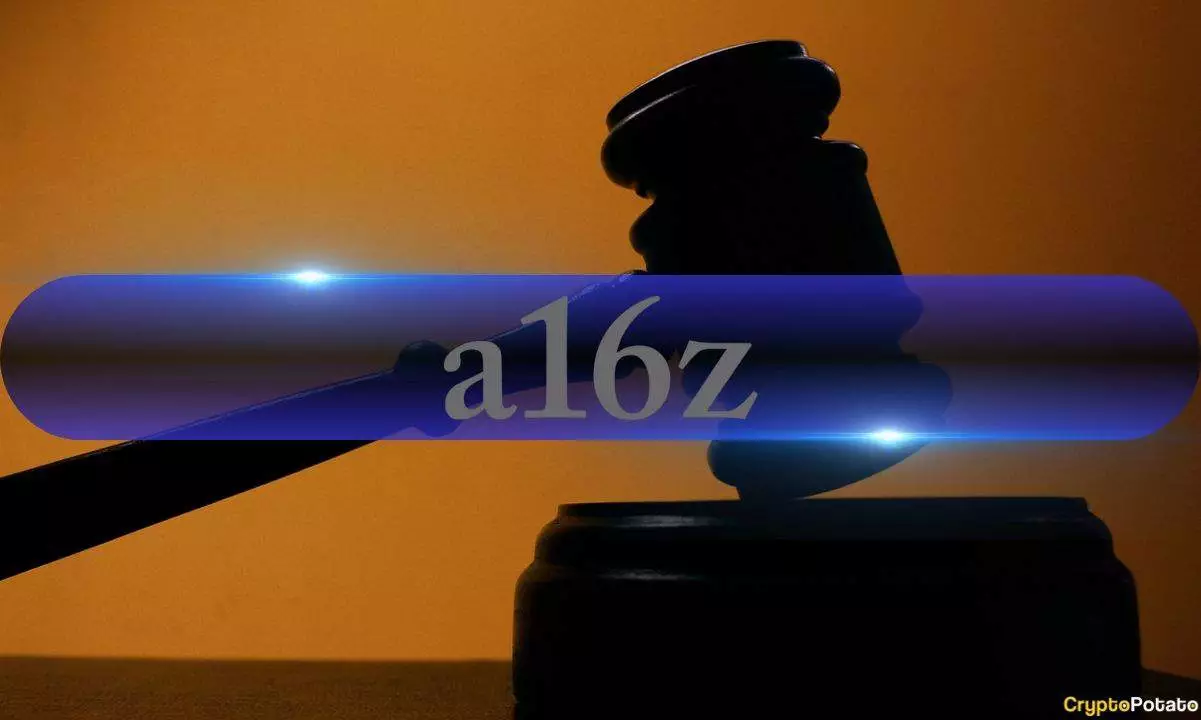In recent months, the decentralized finance (DeFi) sector has been at the center of a heated debate regarding regulatory frameworks shaped largely by the actions of the U.S. Treasury and the Internal Revenue Service (IRS). Michele Korver, a leading voice in this arena as head of regulation at Andreessen Horowitz’s blockchain division, A16z Crypto, has publicly opposed new broker reporting rules issued by these regulatory bodies. The conflict raises significant questions not just about governmental authority but also about the future of innovation in the financial technology space.
At the crux of this regulatory drama is a proposed expansion of the definition of “broker” under the Infrastructure Investment and Jobs Act. Korver argues that this could inadvertently draw DeFi trading platforms into a regulatory web that they are not equipped to navigate. Specifically, the lawsuit backed by A16z and various other blockchain advocates underscores that these platforms typically do not facilitate transactions directly; instead, they provide the tools for users to interact with decentralized protocols. This critical nuance is central to the lawsuit’s argument that imposing such rules is unsound and unwarranted.
The regulations have been met with widespread criticism for having the potential to impose undue burdens on DeFi projects, a concern echoed in remarks made by industry leaders. By expanding the broker definition, the regulatory framework could constrict the operational capabilities of DeFi platforms, which rely on open-source code and decentralized access to facilitate transactions. Instead of upping the ante for transparency and accountability, such an approach may inadvertently hamper innovation and creativity in a sector that prides itself on being accessible and consumer-oriented.
Within 24 hours of the rule’s announcement, the DeFi community responded sharply with a lawsuit aimed at blocking these regulations. This swift legal action demonstrates the industry’s evolving preparedness to challenge perceived regulatory overreach. As highlighted by Jake Chervinsky, head of policy at the Blockchain Association, this kind of rapid response signals a maturation of the policy infrastructure within the crypto space. The urgency of the matter illustrates not only the stakes for DeFi companies but also the industry’s commitment to maintaining its innovative edge against potentially stifling regulations.
Chervinsky’s observations reveal a sense of optimism intertwined with vigilance among industry advocates. Despite the challenges posed by a difficult regulatory environment, there’s a belief that the DeFi sector can not only push back effectively but thrive in a landscape that encourages innovation while ensuring accountability. This sentiment was mirrored by various stakeholders, including founders from leading DeFi projects who expressed a collective concern that the rules might intentionally impede decentralized financial innovations.
Comments made by Uniswap’s CLO, Katherine Minarik, further illuminate the unfavorable consequences of misclassifying DeFi technologies as brokers. She argues that such regulatory classifications are not only incorrect but may also lead to a deluge of unnecessary bureaucratic processes that could ultimately cripple the very innovation they seek to regulate. This highlights a critical tension between the need for oversight and the desire for an unfettered space for experimentation within the DeFi ecosystem.
As the debate continues, the broader implications of these regulatory changes become increasingly clear. Many in the DeFi community argue that excessive regulation could lead to a brain drain, where innovation moves offshore to regions with more favorable laws. This possibility is especially concerning given that DeFi is positioned as an antidote to traditional banking systems that often exclude large segments of the population.
The clash between burgeoning DeFi innovations and regulatory frameworks heralds a pivotal moment in the evolution of financial technology. As plaintiffs prepare their legal defenses and industry experts gear up for a fight, the outcome of this regulatory confrontation could shape the landscape for years to come. Advocates believe it is essential to find a balance where innovation is not sacrificed at the altar of regulation, ensuring that decentralized finance remains a viable alternative to conventional banking practices.
The stakes are high—both for the financial future of individuals and the sectors that promise transformative changes in how we think about money and its management. Ultimately, as the DeFi sector seeks to navigate these turbulent waters, it will require a united front of innovators, legal experts, and policymakers committed to carving out a space that promotes both freedom and responsibility in the evolving world of finance.

